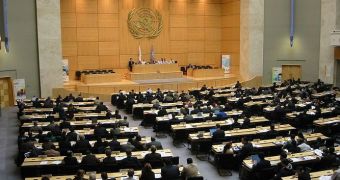One of the primary reasons why today's societies are unfair is the unequal access to healthcare. In addition to this, there are millions of people who have no access to healthcare, except for when they pay exorbitant amounts of money for even the simplest check-up or procedure. Many, even in the developed world, cannot afford to do so, and this is a major contributor to the propagation of social inequities in the world, an expert writes in an independent review in the February 10 issue of the British Medical Journal, PhysOrg reports.
The scientist urges politicians from all parties to resume talks, and to get the healthcare reform rolling, providing tens of millions of people with at least basic coverage, or overhauling the system as a whole. Many criticize the profit-orientation of the health system in the United States today, for example, because it promotes financial gains for owners rather than public health, and because insurance companies can deny people various types of procedures for no good reason. And the result for all this is that people die, without anyone caring for their wellbeing.
The review, written by University College London (UCL) Professor of Epidemiology and Public Health Sir Michael Gideon Marmot, criticizes all previous attempts at overhauling the healthcare system, saying that the track record left behind by politicians is not even worthy of being mentioned. He identified two main goals in a prospective set of improvements to be brought to this system: improving the level of healthcare and wellbeing for all citizens, and reducing the health inequalities that are currently rampant.
Durham University Professor of Health Policy and Management David Hunter agrees with the new paper, but says that there is not a sufficient political will to start tackling this gruesome problem. “Although the report is at pains to point out, as others have, that we are all adversely affected and our lives diminished by the growing health gap, this message could easily get lost,” he and his team believe. “With the economic outlook bleak and an election looming, the temptation will be for politicians to say that we can't afford to deal with health inequalities just yet,” they add.

 14 DAY TRIAL //
14 DAY TRIAL //